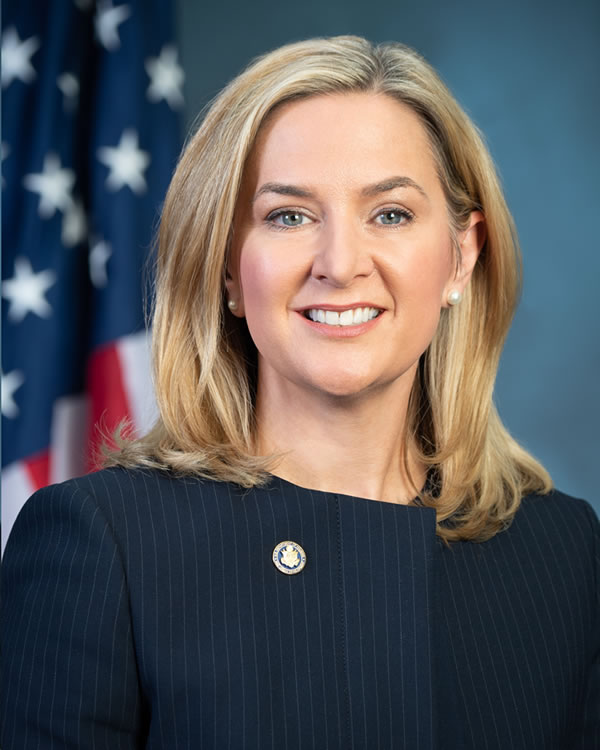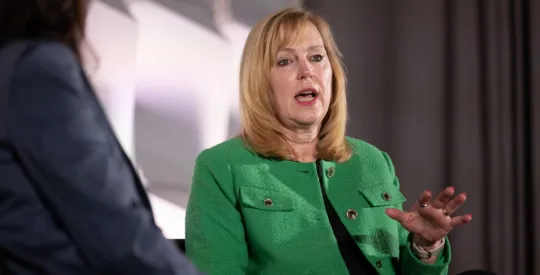Earlier this month, the U.S. Attorney’s Office for the Southern District of New York (SDNY) announced that it had made a series of 70 charges against current and former officials from the New York City Housing Authority (NYCHA), alleging bribes and kickbacks and charging them with bribery and extortion.
The investigation involved more than a year of collaboration between the office of SDNY attorney Damian Williams, the U.S. Department of Housing and Urban Development (HUD) Office of the Inspector General (OIG), the New York City Department of Investigations (DOI), the U.S. Department of Labor OIG and others.
To get a better idea of what the investigation entails and how it could progress, HousingWire sat down for an exclusive interview on the matter with HUD Inspector General Rae Oliver Davis. The OIG is an independent oversight body charged with conducting and supervising audits, evaluations, investigations and reviews relating to HUD programs and operations. Davis shared how the duties of her office intersect with the goals of the larger investigation.
Chris Clow/HousingWire: How did the HUD OIG become involved with this investigation, and what is the office’s role in conjunction with the other involved agencies?
Rae Oliver Davis: We got a call about allegations of bribery at NYCHA on behalf of superintendents. That is bread and butter to us at federal law enforcement agencies, and certainly for SDNY, so we jumped right in and we’ve been working the case ever since.
We are federal law enforcement, so we have the same capabilities to make arrests, conduct interviews and issue subpoenas. We often support our colleagues at the Department of Justice — that’s our go-to on our cases, more or less.
So, we jumped right in and began an investigation. We’re still following the facts. As you know, it’s ongoing and we’re still supporting the department.
HW: The OIG is auditing fraud risk management at NYCHA and also called this issue a management challenge for HUD as a whole. How does this investigation tie into that larger issue?
Oliver Davis: Regarding the fraud risk management work that I announced at the day of the takedown of the 70 individuals, what we really want — ideally — is prevention of [future] cases like this one. We hope to have deterrence. What we’re really doing with the audit work is saying that we want entities like NYCHA to manage their fraud risk on the front end. They’re in the best possible situation. What we typically want to see is them do is an assessment right off the bat, and we also want them to take their temperature and arrive at their own fraud risk tolerance.

This is a really good example of that. For instance, the scheme [at the center of the investigation] involves superintendents who had autonomy over what I’m going to call “micro purchase,” or smaller contracts. Typically in this scenario on a larger project, you would see bids and other competition. In this situation, it was by design that the superintendents would have autonomy to fix things quickly — maybe we’re talking about a heater or an elevator — something that would fall under a particular monetary amount.
So, by design, they were able to go out and award these contracts on their own. But what we’ve seen is that people took advantage of that. We see the individuals bribed other individuals, and we call that “pay to play.” People couldn’t get these contracts without paying the superintendents. Sometimes they get the contracts, but then they couldn’t get the individuals to sign off on their work unless they pay them on the back end.
HW: What does that tell you about NYCHA’s ability to control for that risk?
Oliver Davis: What you see there is perhaps a risk tolerance that needs to be mitigated, and that NYCHA needs to develop their own controls in-house. They need to talk to their stakeholders once they identify these risks. Stakeholders being their own inspector general, there’s certainly a monitor at NYCHA, and I consider myself a NYCHA stakeholder.
And then over time, they need to test their controls they have in place. Ultimately, what we want them to do is help them promote a culture that I’m going to call “anti fraud.” While that’s happening, law enforcement, SDNY, myself and our law enforcement partners, we stay on the job. We still hunt down allegations, make arrests and hold fraudsters accountable. And what you end up with is an ecosystem that protects the funds.
IGs, we use this phrase that sometimes I’ll admit is not my favorite, but we call it “pay and chase.” The money goes out the door and then we chase it. With our limited resources, you can only expect we’re going to bring back so much money from these programs. What we ultimately want is this ecosystem that starts within these organizations, that prevents money from being lost to fraud, waste or abuse, and really also protects the reputations of these programs.
HW: How would you say these priorities align with this particular investigation?
Oliver Davis: When we’re talking about public trust, we’re talking about tenants that rely on these federal dollars to go to the right places. So, this particular audit is designed to encourage a culture of anti fraud and ultimate prevention of further fraud.
This is something we have done at the department-wide level at HUD, but we continually hear from HUD [that they] don’t really think fraud risk management is their job. HUD thinks it’s their grantees’ job and that it’s further down where the money flows out. So, we’re going there. That’s where we’re headed and that’s my strategy. We’re looking at grantees and at public housing authorities.
We frankly already planned to do this audit of NYCHA given the amount of risk that we thought was there. The $2 billion a year that we see go out from HUD to NYCHA, the one in 17 New Yorkers that we see living there, that’s a tremendous amount of risk. So, we were already going to look at NYCHA, and when we’re working on this case and we realized the takedown was drawing near, we decided to wait because this was a covert operation.
Now we’re going forward. I’ll be up in New York next week. We’re doing the entrance conference with NYCHA next week. So we’re not going to let any grass go under our feet.
Look for more soon from HUD IG Rae Oliver Davis at HousingWire.




